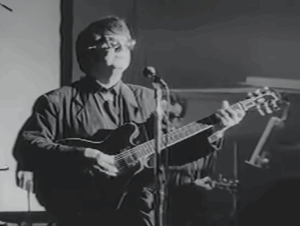Tragedies Of 5 Famous People From The 1970s

via DoYouRemember? / Youtube
The 1970s were a golden era filled with iconic celebrities who dominated music, television, and movies. Yet, behind the glamour, many stars faced personal struggles, leading to tragic endings. Here are five stories of beloved 70s icons who couldn’t escape their demons.
Paul Lynde
Paul Lynde, known for his hilarious turns on Hollywood Squares and Bewitched, was a master of comedy, but his personal life was far from funny. Despite his success, Paul struggled with deep-seated insecurities, including weight issues and his sexuality. At a time when being openly gay was unacceptable, Paul hid his true self, leading to a life filled with internal conflict. His battles with alcohol and drugs only added to his turmoil, culminating in a heart attack in 1982 at the age of 55, leaving behind a legacy of laughter and a hidden pain.
Behind his sharp wit and comedic charm, Paul was a man burdened by personal demons. He faced harsh judgment and rejection due to his weight, which he carried as a painful reminder of his struggles. His hidden sexuality in an era of intolerance further compounded his sense of isolation, making his off-screen life a stark contrast to his public persona.
Paul’s troubled relationships and substance abuse were frequent sources of scandal. Known for his abrasive behavior, his temper and drinking often led to dramatic outbursts and run-ins with the law. These issues not only affected his career but also strained his connections, adding to his deep-seated feelings of inadequacy and bitterness.
Tiny Tim
Herbert Khaury, better known as Tiny Tim, was a unique figure in music, famous for his high-pitched voice and quirky performances. Born on April 12, 1932, Tiny Tim’s fascination with music began early, with his obsession for records and self-taught skills on various instruments. Despite dropping out of high school, he pursued his dream of performing, gaining fame for his distinctive falsetto and eccentric stage presence.
Tiny Tim’s career had its ups and downs. In the 60s, he became a household name with his rendition of “Tiptoe Through the Tulips” on shows like The Johnny Carson Show. However, his life took a tragic turn when, despite suffering from severe health issues, he continued to perform. In November 1996, while singing at a benefit in Minneapolis, Tiny Tim suffered a fatal heart attack on stage, leaving his audience and fans devastated.
Benny Hill
Benny Hill was a comedy legend known for his slapstick humor and cheeky sketches, but his final years were far from glamorous. Once adored for his zany antics and infectious laughter, Benny’s career took a hit in the late 1980s as societal norms shifted and his brand of comedy became outdated. The cancellation of The Benny Hill Show in 1989 marked a turning point, and Benny never fully recovered from the blow, leading to a tragic end.
From a young age, Benny was known as the class clown, despite struggling with stage fright early in his career. Growing up in Southampton, he entertained his peers with pranks and jokes, a foreshadowing of his future comedic genius. Benny’s humble beginnings included a stint in the British Army during World War II, where he entertained troops and honed his comedic skills.
Despite his success, Benny lived a surprisingly frugal life, amassing wealth while refusing to splurge. His eccentric habits included walking to work, patching his clothes, and avoiding unnecessary expenses, although he did indulge in frequent trips to France. This thriftiness contrasted sharply with the lavish lifestyle often associated with celebrities.
Benny Hill’s later years were marked by personal struggles and isolation. After his show was canceled, his health declined rapidly, and he suffered from loneliness and depression. He declined heart bypass surgery and passed away in 1992, leaving behind a legacy of laughter and a substantial estate divided among his family.
Deborah Lee Scott
Deborah Lee Scott, a New Jersey native with a passion for the arts, began her journey to stardom with humble beginnings. Working at a movie theater and studying Greek and Latin, Scott moved to California with her sisters to pursue a career in theater. Her early roles, including a brief but memorable appearance in Clint Eastwood’s Dirty Harry, were just the beginning. She soon landed an agent, which helped propel her to fame.
Scott’s breakout role came with her portrayal of Kathy Shamway on Mary Hartman, Mary Hartman, but it was her role as Rosalie “Tatsi” in Welcome Back, Kotter that truly made her a household name. Her portrayal of the sweet but rebellious cheerleader captured audiences’ hearts and showcased her comedic talent.
Before Saturday Night Live became the go-to platform for emerging comedians, Scott gained significant exposure on the game show Match Game. Known for her playful and flirtatious demeanor, she was a frequent panelist, adding a touch of humor and charm to the show. Her offbeat humor and occasional wardrobe malfunctions became a hallmark of her appearances, making her a beloved figure in the game show circuit.
Despite her success, Deborah Lee Scott’s life took a tragic turn. After leaving Hollywood, she focused on talent management and eventually fell in love with John Dennis Levy, a police officer. Scott’s grief led her into substance abuse, and she struggled with alcoholism for the rest of her life. In 2005, she moved to Florida for a fresh start, but her health deteriorated. She fell into a coma in April 2006 and passed away due to cirrhosis of the liver, a result of her prolonged alcohol use.
Wolfman Jack
Wolfman Jack, born Robert Weston Smith on January 21, 1938, in Brooklyn, New York, transformed his childhood fascination with radio into a groundbreaking career. Raised by an Episcopal Sunday school teacher and a magazine executive, young Robert’s escape from a troubled family life came through his father’s gift of a large trans-oceanic radio. This device introduced him to the world of R&B and the charismatic DJs who broadcasted it. Influenced by figures like Dr. Jive and Alan Freed, Smith began crafting his own radio persona.
Initially struggling with various radio jobs, Smith honed his craft and developed a unique on-air personality. He adopted the name Wolfman Jack as a tribute to Freed’s “Moon Dog” persona, incorporating a distinctive howl and a gritty, raspy voice. His early career took him from a small-town radio station in Virginia to Shreveport, Louisiana, where he found success. However, it was his move to Mexico and work with powerful border blaster stations that truly launched him into the limelight. His broadcasts reached across North America, captivating audiences with a mix of rock, blues, and jazz, and adding a layer of mystery with his concealed identity.
In the early 1970s, Wolfman Jack expanded his influence beyond radio. He became a prominent figure on NBC’s The Midnight Special and made a memorable appearance in George Lucas’s American Graffiti. His involvement in the film earned him a share of the profits, securing his financial stability for years. Wolfman Jack also appeared in TV shows like Happy Days and released a single, “I Ain’t Never Seen a White Man,” which reached number 106 on the Billboard charts.
Despite his success, Wolfman Jack’s life was marked by a sudden and unexpected tragedy. In 1995, he passed away from a heart attack shortly after returning home from a promotional tour for his autobiography.

















